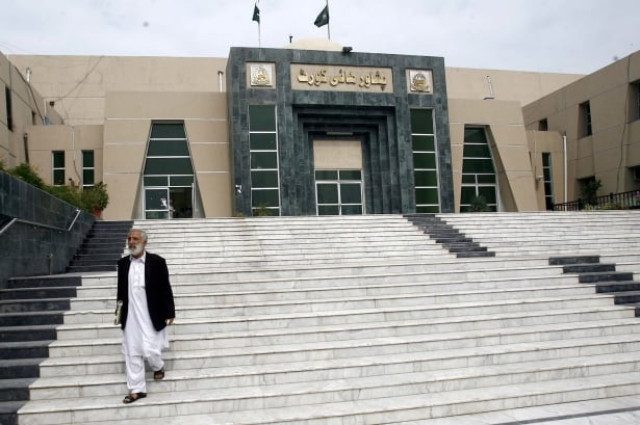Venturing into tribal areas : Detailed judgment outlines PHC jurisdiction in FATA
Court had asked Parliament to amend Article 247 to remove bar on its reach.

A five-member bench has advised Parliament to make amendments in Article 247 (7) of the Constitution. PHOTO: PPI/FILE
In a detailed judgment on the high court’s jurisdiction in the tribal areas, the Peshawar High Court (PHC) has observed that denial of fundamental rights of tribesmen, which are available to other citizens, has caused the tribal areas to become the most dangerous region.
A five-member bench headed by former chief justice Mian Fasihul Mulk, Justice Mazhar Alam Miankhel, Justice Yahya Afridi, Justice Qaiser Rashid Khan and Justice Malik Manzoor Hussain on April 7 had announced the short order, advising Parliament to make amendments in Article 247 (7) of the Constitution.
The Article reads that, “neither the Supreme Court nor a high court shall exercise any jurisdiction under the Constitution in relation to a tribal area, unless Majlis-e-Shoora (Parliament) by law otherwise provides.”
On March 11, the bench put forward seven basic questions before a panel of senior lawyers, asking them to assist the court to decide if it was in its jurisdiction to hear cases from the Federally Administered Tribal Areas (Fata). The points included the court’s authority in hearing cases of employees of the federal and provincial governments working in the tribal areas as well as cases of DMG and service commission officials and employees exclusively recruited for tribal areas. Moreover, the bench had questioned whether the high court can entertain cases regarding illegal detention of tribal residents, appeals against decisions of the FATA Tribunal, including both civil and criminal cases, and how to proceed if the cause of an action is in the settled areas but the incident occurs in tribal areas.
The court states in its order that there is no regulatory mechanism to check the misuse of power by political agents which often results in serious human rights violations. The political agent makes a decision regarding conviction or acquittal and is not bound by recommendation of relevant tribal jirgas. The political agent’s order cannot be challenged before the high court.
“We are, therefore, of the view that all employees of FATA Secretariat, its line department and subordinate offices are civil servants, whether on deputation from the provincial government or appointed by the federal government either on a temporary or permanent basis, and the bar contained in Article 247 would not apply to those government servants merely by their posting in the tribal areas,” reads the 46-page order, with a 23-page additional note by Justice Afridi.
It further states that if a person is illegally removed from a settled area to the tribal territory by political authorities, the court can entertain the matter, if the procedure laid down in Section 86-A of the Criminal Procedure Code, 1898, has not been fulfilled.
“If the cause of action has occurred in the settled area but the proceedings have been carried out by the political authority within Fata, then this court has the jurisdiction to entertain the matter,” the order explains.
Moreover, if a person belonging to the settled areas is arrested within the territorial limits of this court and then moved to the tribal areas without fulfillment of the necessary legal requirements, this court may exercise constitutional jurisdiction in the matter, the court explained.
Similarly, on contractual obligations between government functionaries and private persons in the tribal areas, cases could be entertained by ordinary courts of the province, PHC stated.
PHC was hearing around 60 petitions in which petitioners want the Frontier Crimes Regulation abolished, extension of jurisdiction of high court to tribal areas, restraining members of the FATA Tribunal and to abolish other laws which are against fundamental rights.
Published in The Express Tribune, May 6th, 2014.













COMMENTS
Comments are moderated and generally will be posted if they are on-topic and not abusive.
For more information, please see our Comments FAQ